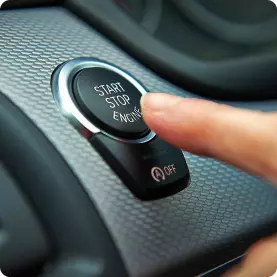Maryland DUI Laws: Your 2025 DUI Charges Guide
Maryland imposes strict penalties for driving under the influence, with a tiered penalty system based on blood alcohol concentration (BAC) levels and prior offenses. The state uses both DUI (Driving Under the Influence) and DWI (Driving While Impaired) charges, with DUI being the more serious offense typically involving a BAC of 0.08% or higher. Maryland’s Ignition Interlock Program, known as the Ignition Interlock System Program (IISP), is mandatory for high-BAC and repeat offenders, and serves as both a penalty and a path to regaining limited driving privileges.

Getting Started
If you’re arrested for a DUI in Maryland, you face both administrative processes through the Motor Vehicle Administration (MVA) and criminal proceedings through the court system. This guide mainly addresses DUI charges but will specify DWI-related items when appropriate. However, the general information about Maryland’s DUI laws and procedures presented here is not considered legal advice.
Important Note: While this page gives detailed information about Maryland DUI laws, DUI.org does not offer or provide legal advice. Laws can change, so consult a qualified criminal attorney for personalized guidance.
Definitions to Know
DUI (Driving Under the Influence)
Driving Under the Influence is Maryland’s most serious impaired driving offense, typically charged when a driver has a BAC of 0.08% or higher or is substantially impaired by alcohol.
DWI (Driving While Impaired)
Driving While Impaired is a less severe charge, generally applied when a driver has a BAC between 0.07% and 0.08% or shows some impairment by alcohol or drugs.
IID (Ignition Interlock Device)
A car breathalyzer installed in your vehicle that prevents it from starting if alcohol is detected on your breath.
MVA
The Maryland Motor Vehicle Administration handles administrative license suspensions, restricted license applications, and ignition interlock program oversight for DUI cases.

Wondering what the difference between DUI, DWI, and OVI is?
Maryland Motor Vehicle Administration (MVA)
The MVA plays a crucial role in DUI cases in Maryland, operating separately from the court system. The MVA handles administrative license revocations, issues restricted licenses, oversees the Ignition Interlock System Program, and processes license reinstatements after DUI violations. Their administrative penalties apply regardless of the outcome of criminal charges, and drivers must address both MVA requirements and court-mandated penalties to fully resolve a DUI case. The MVA also maintains records of alcohol-related driving offenses and enforces compliance with treatment and education programs required after a DUI.
Steps to Take After DUI Arrest in Maryland
- Hire an Attorney
A DUI attorney can help navigate both the MVA administrative process and criminal court proceedings.
- Address License Suspension
Your license will be administratively suspended if you had a BAC of .08 or higher or refused testing.
- Request an MVA Hearing
You have 10 to 30 days depending on the circumstances to request an administrative hearing to contest the license suspension, or to elect to participate in the Ignition Interlock Program.
- Consider the Ignition Interlock Program
Installing an ignition interlock device may allow you to continue driving while your regular license is suspended.
- Complete Alcohol Education Program
Maryland requires completion of an alcohol education or treatment program following a DUI conviction.
- Pay Fines and Fees
Court-imposed fines vary based on offense number and circumstances, plus additional fees for license reinstatement.
- Attend Court Proceedings
Your criminal case will proceed through the court system separately from the MVA administrative actions.
- Comply with Probation Terms
Probation may include regular check-ins, alcohol testing, and treatment program participation.
- Avoid Further Violations
Additional DUI offenses during a suspension or probation period will result in enhanced penalties.
DUI Laws in Maryland
What Are the Legal Driving Alcohol Limits in Maryland?
In Maryland, it’s illegal to drive while impaired by alcohol, drugs, or a combination of substances. Law enforcement officers use both field sobriety tests and chemical tests to determine impairment. The state establishes specific blood alcohol concentration (BAC) thresholds for different categories of drivers.
| Driver Category | Legal BAC Limit |
| Drivers over 21 | Less than 0.08% (DUI at 0.08% or higher; DWI possible at 0.07%) |
| Commercial Drivers | Less than 0.04% |
| Drivers under 21 | Less than 0.02% (zero tolerance) |
Felony vs Misdemeanor DUI Charges
In Maryland, most DUI and DWI offenses are classified as misdemeanors. However, certain circumstances can elevate a DUI to a felony charge, particularly if the impaired driving results in serious injury or death to another person.
A DUI becomes a felony in Maryland when:
- The impaired driving causes another person’s death (vehicular homicide while intoxicated)
- The impaired driving results in life-threatening injuries to another person
- The driver has multiple prior convictions under certain circumstances
Felony DUI convictions carry substantially harsher penalties, including longer imprisonment terms (up to 5 years for vehicular homicide while intoxicated), higher fines, and extended license revocation periods.
What Are Drunk Driving Diversion Programs in Maryland?
Maryland offers the Probation Before Judgment (PBJ) program as a form of diversion for first-time DUI offenders. This program allows the court to place an offender on probation without entering a formal conviction. If the probation terms are successfully completed, the offender may avoid having a conviction on their record, though the DUI arrest will still appear in driving records.
Eligibility typically requires:
- First-time offense with no prior DUI/DWI convictions
- No serious injuries or fatalities resulting from the incident
- BAC below a certain threshold (typically less extreme cases)
- Completion of an alcohol assessment and recommended treatment
The program usually includes probation supervision, alcohol education courses, and other court-imposed conditions.
Refusing a Chemical Test Under Maryland DUI Law
Maryland operates under an implied consent law; when you drive on Maryland roads, you implicitly agreed to chemical testing if suspected of impaired driving. Refusing a breathalyzer or blood test has significant administrative consequences separate from any criminal penalties.
| Refusal Consequences | First Offense | Second or Subsequent Offense |
| License Suspension | 270 days | 2 years |
DUI Penalties & Consequences
Penalties for DUI Offenses in Maryland
Maryland imposes increasingly severe penalties for DUI convictions, with enhanced sanctions for higher BAC levels and repeat offenses. The following table outlines the potential penalties:
First DUI Offense
Maximum Jail Time: Up to 1 year
Maximum Fine: $1,000
License Suspension: 6 months
Points on License: 12 points
Ignition Interlock: Required if BAC ≥0.15%
Alcohol Education: Required
Second DUI Offense
Maximum Jail Time: Up to 2 years
Maximum Fine: $2,000
License Suspension: 1 year
Points on License: 12 points
Ignition Interlock: Mandatory
Alcohol Education: Required
Third or Subsequent DUI Offense
Maximum Jail Time: Up to 3 years
Maximum Fine: $3,000
License Suspension: 18 months to indefinite
Points on License: 12 points
Ignition Interlock: Mandatory
Alcohol Education: Required
For a DWI (lesser charge), penalties include up to 60 days in jail and $500 fine for first offense, and up to 1 year in jail and $500 fine for second and subsequent offenses.
Aggravating Factors That Increase Maryland DUI Penalties
In Maryland, several aggravating factors can significantly increase DUI penalties, resulting in enhanced charges, longer jail sentences, higher fines, and extended license suspensions:
- High BAC Levels: BAC of 0.15% or higher triggers mandatory ignition interlock participation and may result in enhanced penalties.
- Child Passenger(s): Driving under the influence with a minor in the vehicle adds additional penalties, including potential felony charges, enhanced fines, and mandatory jail time.
- Causing an Accident: DUI that results in an accident, especially with injuries, leads to significantly harsher penalties.
- Excessive Speed: Combining DUI with excessive speeding or reckless driving enhances penalties.
- Prior Offenses: Multiple DUI offenses within a 5-year period result in substantially increased mandatory minimum penalties.
- Fatal Accidents: DUI resulting in death can be charged as vehicular homicide while intoxicated, a felony with penalties up to 5 years imprisonment.

Will your DUI conviction land you in jail?
Driving Without a Valid License
Operating a vehicle while your license is suspended due to a DUI is taken extremely seriously in Maryland. This offense can result in:
- Additional criminal charges for driving on a suspended license
- Extended suspension periods for your license
- Mandatory jail time, particularly for repeat offenders
- Substantial fines (up to $1,000)
- Ineligibility for restricted licenses or early reinstatement
- Possible vehicle impoundment
If you’re convicted of a DUI, strictly follow all license restrictions to avoid more penalties. Never drive after drinking; use rideshare or public transit instead. Even one violation while suspended can add criminal charges and delay getting your license back.
License Suspension
In Maryland, two separate entities determine your driving privileges after a DUI:
- The Maryland Motor Vehicle Administration (MVA): Handles administrative license suspensions based on either test failure (BAC of 0.08% or higher) or test refusal. This process is automatic and independent of court proceedings.
- The Maryland Court System: Imposes additional license suspension or revocation as part of criminal sentencing if you’re convicted of DUI or DWI.
The administrative process through the MVA begins immediately after arrest, while court-imposed restrictions come after conviction. You must satisfy requirements from both entities to fully restore your driving privileges. The MVA administrative hearing process allows you to contest the automatic suspension, but you must request a hearing within specific timeframes.
How Long Will Your License Be Suspended?
A DUI or DWI in Maryland triggers an administrative license suspension by the MVA, with the suspension length depending on your BAC level, whether you refused testing, and if you have prior offenses. These suspensions are separate from and may be in addition to any court-ordered suspension following a conviction.
| Offense | BAC 0.08% to 0.14% | BAC 0.15% or Higher | Test Refusal |
| 1st Offense | 180 days | 180 days | 270 days |
| 2nd Offense | 180 days | 270 days | 2 years |
| 3rd Offense | 180 days | 270 days | 2 years |
| 4th Offense | 180 days | 270 days | 2 years |
Steps to Reinstate Your License
To reinstate your driver’s license after a DUI-related suspension in Maryland, you must:
- Serve the full suspension period or enroll in the Ignition Interlock Program if eligible.
- Pay all reinstatement fees to the MVA (typically $100-$150 depending on the violation).
- Complete a required alcohol education or treatment program and provide completion certificate to the MVA.
- For certain offenders, install an ignition interlock device as required by the Ignition Interlock System Program.
- Obtain a new physical license from an MVA branch office after satisfying all requirements.
Restoring Your Driving Privileges
Maryland does not issue traditional “hardship” or “work permits” after a DUI. Instead, drivers may be eligible for continued driving through participation in the Ignition Interlock System Program (IISP). This program allows eligible drivers to operate vehicles equipped with an ignition interlock device during what would otherwise be a suspension period.
Eligibility for a Restricted Driver’s License
Eligibility for the ignition interlock option depends on:
- Nature of the violation (test failure vs. refusal)
- BAC level at time of arrest
- Number of prior offenses
- Compliance with MVA requirements
- Court orders and judgments
The program requires full compliance with ignition interlock rules, and any violations can result in removal from the program and reinstatement of the full suspension period.
How to Apply for Ignition Interlock Program
To participate in Maryland’s Ignition Interlock System Program (IISP) and maintain driving privileges:
- Elect to participate in the program within 30 days of receiving the Order of Suspension from the MVA.
- Visit an MVA branch office to obtain an Ignition Interlock System Program participation form.
- Have an approved ignition interlock service provider install a state-approved device in your vehicle (any vehicle you intend to drive).
- Provide installation certification to the MVA within 30 days of electing to participate.
- Pay all applicable program fees, including installation, monthly monitoring, and calibration costs.
- Report to the service provider every 30 days for device calibration and data download.
- Maintain the device for the required participation period (varies based on violation and offense history).
Maryland Ignition Interlock Device (IID) Requirements
Maryland’s Ignition Interlock System Program establishes specific requirements for participants and their devices. The ignition interlock device must be installed in each vehicle you drive and meet all Maryland MVA specifications.
The program requires:
- Monthly monitoring appointments with your service provider
- Passing all breath tests before starting your vehicle
- Passing random retests while driving
- No attempts to tamper with or circumvent the device
- Payment of all associated fees (typically $75-$100 per month)
Participation periods vary by offense:
| Offense | BAC Level | License Suspension Duration |
| First-time offender | BAC 0.08%–0.14% | 6 months |
| First-time offender | BAC 0.15% or higher or test refusal | 1 year |
| Second-time offender | Any BAC | 1 year |
| Third or subsequent offender | Any BAC | 3 years |
Program violations, such as failed breath tests or missed calibration appointments, can result in program extension or removal from the program.

Selecting the right ignition interlock provider can make a world of difference.
SR-22 Insurance Requirements
Maryland does not typically require SR-22 insurance filing after a DUI conviction, which differs from many other states. Instead, Maryland relies on the Maryland Automobile Insurance Fund (MAIF) as an insurer of last resort for high-risk drivers who may have difficulty obtaining insurance in the private market.
However, drivers convicted of DUI in Maryland will still likely face:
- Substantial increases in auto insurance premiums
- Possible cancellation of existing insurance policies
- Difficulty finding affordable coverage
While SR-22 filing is not mandated, proof of insurance is required for license reinstatement and vehicle registration. Drivers must maintain continuous coverage to avoid additional license suspensions.

Let us help connect you to the right licensed insurance specialist for you.
Substance Abuse Evaluation and Treatment
Maryland may require drivers convicted of DUI to complete an alcohol education or treatment program as part of the license reinstatement process. The Maryland Motor Vehicle Administration works with the state’s certified treatment providers to ensure compliance.
Key aspects of this requirement may include:
- Mandatory assessment by a state-approved alcohol education or treatment provider.
- Completion of the recommended level of education or treatment, which may range from a 12-hour education program for first-time convictions to intensive outpatient or inpatient treatment for drivers with repeat offenses or those with higher BAC levels.
- Regular attendance and compliance with program requirements.
- Submission of completion certificate to the MVA for license reinstatement.
- Possible ongoing treatment as a condition of probation.
The specific program requirements depend on the assessment results, prior offenses, BAC level, and court orders.

Understand what to expect and how to prepare for a substance abuse evaluation.
FAQs About DUIs in Maryland
What’s the difference between DUI and DWI in Maryland?
A DUI (Driving Under the Influence) is charged when BAC is 0.08% or higher, while DWI (Driving While Impaired) is the lesser charge for BAC between 0.07% and 0.08% or when there’s evidence of some impairment.
Will you lose your license immediately after a DUI arrest?
Yes, if you fail a chemical test with BAC of 0.08% or higher or refuse testing, your license will be confiscated at the scene and replaced with a temporary paper license valid for 45 days.
Can you drive to work during your suspension period?
There are no traditional “work permits,” but you may continue driving by participating in the Ignition Interlock Program, which allows driving with an installed IID.
How long will a DUI stay on your Maryland driving record?
A DUI conviction remains on your Maryland driving record indefinitely.
Can you refuse a breath test in Maryland?
You can refuse, but under implied consent laws, refusal results in an automatic license suspension of 270 days for first offense and 2 years for subsequent offenses.
Sources
- Maryland Department of Legislative Services. (2016). Guide to Drunk and Drugged Driving Laws DEPARTMENT OF LEGISLATIVE SERVICES 2016. https://dls.maryland.gov/pubs/prod/CourtCrimCivil/Guide-to-Drunk-and-Drugged-Driving-Laws2016.pdf
- Maryland Motor Vehicle Administration. (2016). Maryland Impaired Driving Laws. https://mva.maryland.gov/drivers/Pages/maryland-impaired-driving-laws.aspx
- Vandervort-Clark, J.D., A. (2023, December 10). What Are the Maryland DUI Laws? Findlaw. https://www.findlaw.com/state/maryland-law/what-are-the-maryland-dui-laws.html
- National College for DUI Defense. (2024). DUI Laws in Maryland. National College for DUI Defense. https://www.ncdd.com/maryland-dui-laws
- Maryland Motor Vehicle Administration. (2025). 12-Hour Alcohol Education (AEP) Program Requirements. Maryland Motor Vehicle Administration. https://mva.maryland.gov/about-mva/Pages/info/26200-678/26200-07T.aspx
- Maryland Motor Vehicle Administration. (2024). General Hearing Information. Maryland Motor Vehicle Administration. https://mva.maryland.gov/about-mva/Pages/info/26100/26100-10T.aspx
- Maryland Motor Vehicle Administration. (2025b). Driver Wellness And Safety. Maryland Motor Vehicle Administration. https://mva.maryland.gov/about-mva/Pages/info/26200/safety.aspx
- Maryland Motor Vehicle Administration. (n.d.). Ignition Interlock Program. Maryland Motor Vehicle Administration. https://mva.maryland.gov/about-mva/Pages/info/26200/26200-14T.aspx
- Maryland Motor Vehicle Administration. (2025a). 3-Hour Alcohol and Drug Education Program. Maryland Motor Vehicle Administration. https://mva.maryland.gov/about-mva/Pages/info/26200-678/26200-09T.aspx
Get support.
What is next? We can help you through the process. Give us a little information and we can support you through the next steps.
All fields are required.